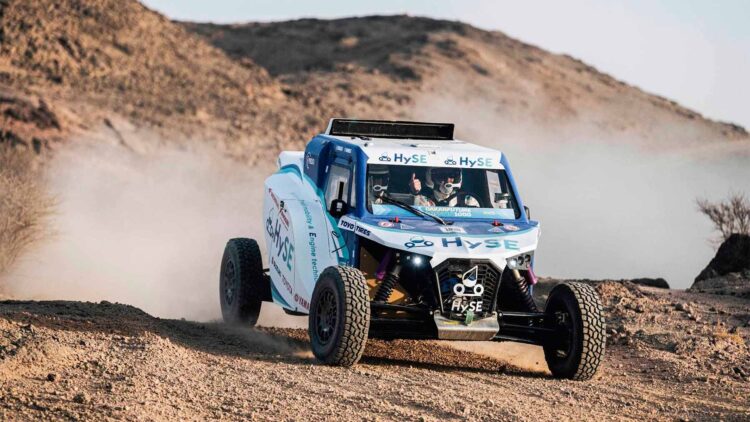Honda, Yamaha, Kawasaki, Suzuki, and Toyota just built a bike that runs on hydrogen.
The bike is real—and it’s the brainchild of a dream team of Japanese heavyweights. Yes, every single one of them, working side by side.
Usually, these brands are busy outdoing each other. But this time, they’ve parked the rivalry to build something that could change the future of two-wheeled travel: the world’s first hydrogen-powered motorcycle.
And the craziest part is that it is not just a prototype—it actually works. For decades, Toyota and Honda have been sparring in the car world, while Yamaha, Suzuki, Kawasaki, and Honda have been duking it out in motorcycles. Seeing all of them unite on one project? That’s almost as big a deal as the bike itself.
But climate change changes the game, and Japan’s automotive industry has realized that to hit real carbon neutrality goals, they can’t go it alone. So instead of just building their own clean vehicles in secret, they’re opening the doors to collaboration, even with competitors.
Toyota, for example, has been doubling down on hydrogen fuel cell tech for years, while most of the world focused on electric vehicles. Now, they’re working with BMW to help develop a hydrogen-powered car by 2028. Not a concept car, but an actual car you’ll be able to drive.
And while the auto giants are thinking four wheels, Japan’s motorcycle makers have been cooking up something of their own.
The hydrogen motorcycle is real—and it’s a big step for the big companies
Honda, Yamaha, Suzuki, and Kawasaki created a joint team called HySE (Hydrogen Small mobility & Engine technology). And they completely pulled it off.
Here’s how it works :
- All four brands worked on the engine tech.
- Yamaha focused on how to make refueling work.
- Kawasaki handled the fuel supply system.
What they ended up with is a motorcycle that uses a hydrogen internal combustion engine, meaning it runs like a regular engine but without the dirty emissions. It doesn’t need a huge battery, and it doesn’t take hours to recharge. Just a quick refill of hydrogen, and you’re off.
The only thing that comes out of the tailpipe is water vapor. That’s it. No CO₂ emissions, no fumes, no guilt.
Why not just go electric?
Everyone’s talking about electric vehicles these days—and for good reason. They’re clean, whisper-quiet, and improving fast.
In Norway, for example, nearly 9 out of 10 new cars sold last year were fully electric. That’s huge.
But EVs aren’t flawless. Charging can take a while, batteries add a lot of weight, and in many places, the charging network is still years away from being ready.
Hydrogen offers something different. You can refuel in minutes, like a normal gas stop. The engines are lighter. And for vehicles like motorcycles—where space and weight really matter—hydrogen makes a lot of sense.
That’s why Japan isn’t picking sides. Instead, the Japanese auto industry is investing in both—electricity and hydrogen. Different tools for different jobs. And maybe, just maybe, that’s the smartest way forward.
What should we be expecting next?
For now, this hydrogen motorcycle is a major step, and not just for tech, but for how these companies are thinking.
It’s not about selling more bikes anymore; it’s about building something better for the future. About cities with cleaner air. About keeping the thrill of riding alive without the pollution.
Sure, there’s still work ahead; things like infrastructure, availability, and cost are big hurdles. But if Honda, Yamaha, Kawasaki, Suzuki, and Toyota are ready to put decades of rivalry aside and team up on this… well, that’s something worth paying attention to.
This isn’t just a cool new motorcycle. It’s a signal that change is coming—and that the future of sustainable mobility might not be a trade-off after all… it might just be better.

